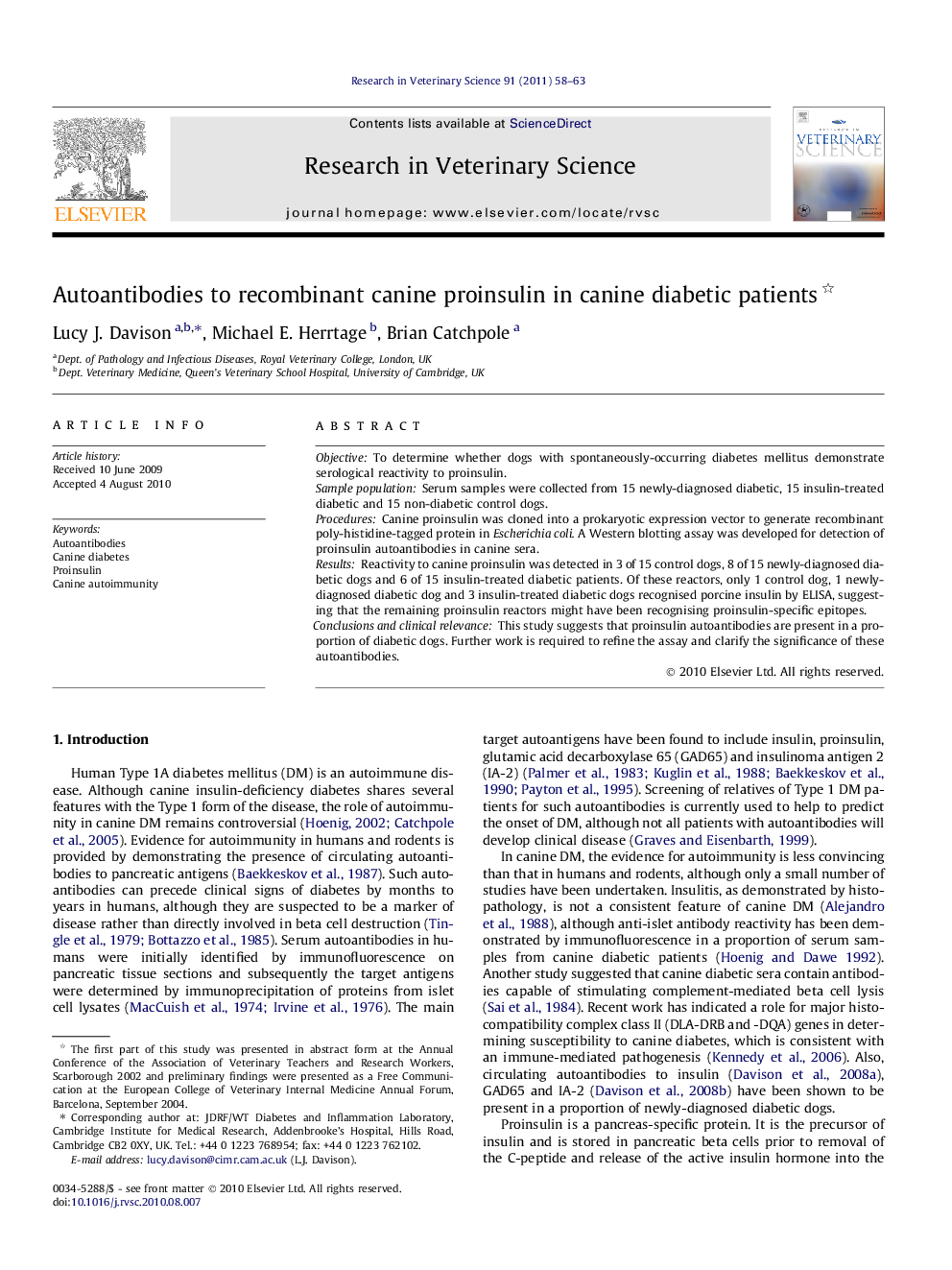| Article ID | Journal | Published Year | Pages | File Type |
|---|---|---|---|---|
| 2455608 | Research in Veterinary Science | 2011 | 6 Pages |
ObjectiveTo determine whether dogs with spontaneously-occurring diabetes mellitus demonstrate serological reactivity to proinsulin.Sample populationSerum samples were collected from 15 newly-diagnosed diabetic, 15 insulin-treated diabetic and 15 non-diabetic control dogs.ProceduresCanine proinsulin was cloned into a prokaryotic expression vector to generate recombinant poly-histidine-tagged protein in Escherichia coli. A Western blotting assay was developed for detection of proinsulin autoantibodies in canine sera.ResultsReactivity to canine proinsulin was detected in 3 of 15 control dogs, 8 of 15 newly-diagnosed diabetic dogs and 6 of 15 insulin-treated diabetic patients. Of these reactors, only 1 control dog, 1 newly-diagnosed diabetic dog and 3 insulin-treated diabetic dogs recognised porcine insulin by ELISA, suggesting that the remaining proinsulin reactors might have been recognising proinsulin-specific epitopes.Conclusions and clinical relevanceThis study suggests that proinsulin autoantibodies are present in a proportion of diabetic dogs. Further work is required to refine the assay and clarify the significance of these autoantibodies.
